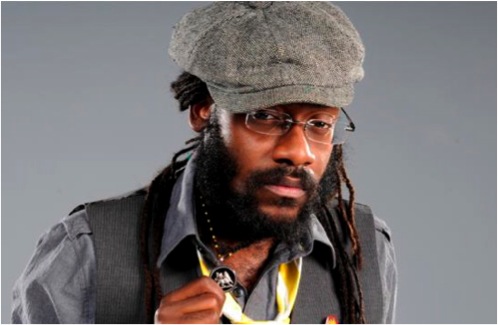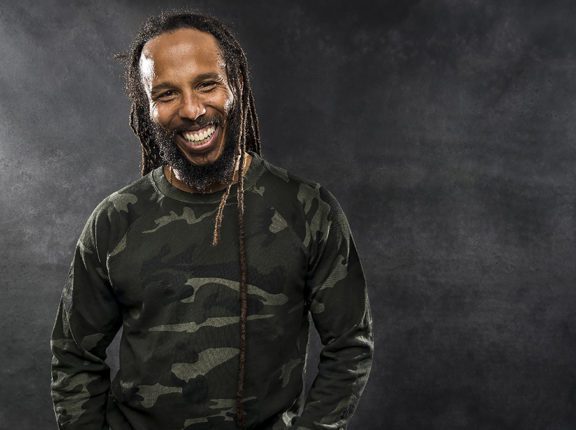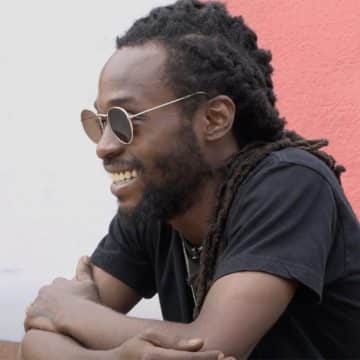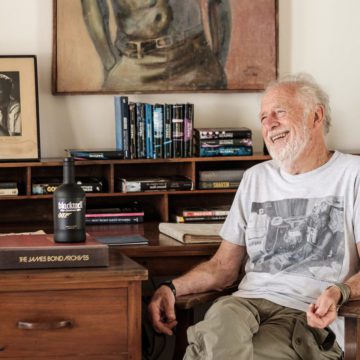By Alexander Britell
Tarrus Riley is one of the leading lights of reggae music today, who led the BBC to call him “Jamaica’s brightest hope” on the release of his previous album, “Contagious,” in 2009. The Bronx-born Jamaican stays true to Jamaica’s landmark art form, but has managed to show exceptional range – from work in dancehall music to his latest project, an acoustic album that is the brainchild of veteran producer and longtime collaborator Dean Fraser. Most recently, he was nominated as Cultural Artiste of the Year in the Youth View Awards in Jamaica and was the Jamaica Observer’s Artiste of the Year in 2007. In August, he won the Marcus Garvey Award for his contribution to upholding the vision of Garvey, whom he cites as a major influence in his music. To learn more, CJ Arts talked to Riley about his current album, the importance of Garvey to his sound and reggae’s place in the global music industry.
What are you working on right now?
I’m just about ready to finish up an acoustic album. I’ve been doing a lot of traveling and touring recently. Not long ago I was in Hawaii, where we put on a charity concert as a gift to the people of America. This week is the Shaggy show. I’m working, I’m recording a lot – I’m into it. When you like it, it’s about giving a lot – it’s not easy. I don’t take it lightly. I put in hard work, and you can’t sing one song three times to get it right.
What made you decide to do an acoustic album?
Actually, it was my producer Dean Fraser’s idea. I’m very much into instruments, but I want to push on, to be heard in a different light. And like I said, acoustic, I thought that was cool.
Has your music changed since you first began?
I mean, the only difference I would say is I have more experience. I’ve been trying different things. I think my confidence is going up. I’m speaking out on things that I’m very passionate about, like Shaka Zulu [the subject of his latest single, Shaka Zulu Pickney]. I’m always talking from the heart – so you have to grow and change, and as you grow, you grow strong and you grow wiser. So I don’t see any drastic changes, because I’m the same person, but we’re experimenting on different sounds – trying out different sounds.
Do you think reggae is still somewhat of a political art form?
It’s not political. Reggae music – for the elders definitely, it was the voice of the people, like any other genre of music that’s in touch with the people. So what happened is not just political. A lot of people have a lot of things to say, and they don’t sing, and the reggae musicians sing on behalf of the people’s opinions. If that’s political, then … But it’s true to the community. But when you say political, you have a certain style. But definitely it’s a reflection of the community, less it’s from somebody’s imagination, which is rare.
What is the biggest challenge for reggae today?
It would be the industry. It’s a very, very recognized music, and yet still I want Jamaica to benefit from it more. All over the world, people are into reggae – it’s a new thing, but it’s an ancient thing. I call it the newest old music, and the oldest new music. Because for people it’s still very topical, it’s very current. I want Jamaica to feel the music. Even worldwide, the reggae music is played all over the world. It needs more recognition, more acknowledgment. For example, you have the Reggae Grammys, but we want the Reggae Grammys to be a part of the whole thing – we don’t just want to hear about it. Right now, Justin Bieber is singing reggae – a lot of people don’t know that So we need people to know those things, to see those things and to know them. Those things should be highlighted – just like when anybody hears hip-hop and says, “that’s hip-hop,” when you hear Justin Bieber singing “Under the Mistletoe,” in reggae, people should know that. So it needs more acknowledgement, and more recognition.
Who are your greatest inspirations?
They’re not just within music. Because we have a lot of people who, like Marcus Garvey, have a big influence in my music. History is another big influence in my music, the teaching of Rastafari, the way the mother and father grow on me. They know if you want to get into the music, you have to get a long list, because we listen to a lot of my father’s music, which is the R&B, the original soul music, Chick Willis. That’s why a lot of people think I’m older than I really am – calling me an old man, because my knowledge is what I get from my father’s friends, so a lot of vintage music, a lot of roots music, but just music.
This year is Jamaica’s 50th anniversary of independence – what does that mean to you?
It’s very nice. 50 years of being independent, that’s a great thing, and Jamaica should be proud about it. When you talk about politics, we don’t want to be political, we want everyone in Jamaica to think as a Jamaican, whatever party you want to represent, whatever religion you want to represent – a rastaman alone. So independence is always good – Marcus Garvey wanted to free the people. And in 50 years, we can have a better 50 years to come.







